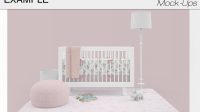
Harnessing the Power of Screen Mockups: A Comprehensive Guide
In today’s digital landscape, creating visually appealing and engaging user interfaces is paramount. Screen mockups play a pivotal role in this process, providing designers and developers with a powerful tool to showcase their creations in a realistic setting. A screen mockup is essentially a visual representation of a user interface or application design, allowing stakeholders to visualize how the final product will appear on various devices. This article delves deep into the world of screen mockups, covering their types, benefits, best practices, and resources for finding free screen mockups.
Types of Screen Mockups
The versatility of screen mockups extends to a wide range of devices and applications. Here are some of the most common types:
-
Website Mockups: These mockups showcase the design of a website, providing a comprehensive view of the homepage, individual pages, and various sections.
-
Mobile App Mockups: Designed specifically for mobile applications, these mockups demonstrate the user interface on different screen sizes and orientations.
-
Desktop App Mockups: Created to represent the user interface of desktop applications, they simulate the look and feel of the software on a computer screen.
-
Social Media Mockups: These mockups showcase social media posts, comments, and profiles, providing an accurate representation of how the content will appear on platforms like Facebook, Instagram, and Twitter.
-
Device Mockups: These mockups feature a variety of devices, such as smartphones, tablets, laptops, and smartwatches, allowing designers to visualize their designs on actual devices.
Benefits of Using Screen Mockups
Screen mockups offer numerous advantages throughout the design and development process:
-
Improved Communication: Mockups facilitate clear and effective communication between designers, developers, and stakeholders. They serve as a tangible reference point, reducing misunderstandings and ensuring everyone is on the same page.
-
Streamlined Feedback: Mockups enable stakeholders to provide feedback early on, allowing designers to address issues and incorporate changes before investing significant time and resources in development.
-
Enhanced User Experience: By visualizing the user interface in a realistic setting, mockups help designers identify potential usability issues and make necessary adjustments to improve the overall user experience.
-
Accelerated Development: Mockups reduce the need for costly and time-consuming prototyping, enabling developers to begin coding with confidence, knowing that the design has been thoroughly reviewed and approved.
-
Effective Presentation: Mockups serve as powerful presentation tools, showcasing the design concept and capturing the attention of potential investors, clients, or end-users.
Best Practices for Creating Effective Screen Mockups
To maximize the effectiveness of screen mockups, it is essential to follow these best practices:
-
Choose the Right Tool: Select a screen mockup tool that aligns with your project requirements and skill level. Consider factors such as ease of use, compatibility, and available features.
-
Pay Attention to Detail: Create mockups that accurately reflect the intended design, including visual elements, typography, and functionality. Consistency and attention to detail are crucial.
-
Use Realistic Devices: Opt for mockups that feature devices that are relevant to your target audience. This enhances the authenticity and credibility of the user interface design.
-
Incorporate Interactions: Consider adding interactive elements to your mockups, such as clickable buttons, dropdown menus, and scrolling effects, to provide a more immersive experience.
-
Provide Context: Mockups should not exist in isolation. Surround them with relevant elements, such as a background, surrounding interface, or complementary graphics, to create a cohesive and realistic representation.
Free Resources for Screen Mockups
Numerous online resources offer a vast collection of free screen mockups to cater to diverse design needs:
-
Mockup World: A comprehensive repository featuring a wide variety of screen mockups, including website, mobile app, social media, and device mockups.
-
Pixeden: Provides an extensive library of free and premium mockups, covering a range of categories from websites to apps and social media graphics.
-
Ui8: Offers a curated selection of high-quality screen mockups, available in both free and paid options.
-
Freebiesbug: A dedicated platform showcasing a vast collection of free screen mockups, PSD templates, and other design resources.
-
Dribbble: A popular platform for designers, where users can discover and share screen mockups, among other design assets.
Frequently Asked Questions (FAQs)
- What is the difference between a screen mockup and a prototype?
A screen mockup is a static representation of a user interface design, while a prototype is an interactive representation that allows users to experience the functionality and navigation of the design.
- Which software is best for creating screen mockups?
Numerous software options are available, such as Figma, Adobe XD, Sketch, and InVision Studio. The choice depends on factors such as the project requirements, team preferences, and budget.
- How do I create a realistic screen mockup?
To create a realistic screen mockup, pay attention to details like typography, color accuracy, device choice, and the inclusion of interactive elements and contextual elements.
- Where can I find free screen mockups?
There are several online resources that offer free screen mockups, including Mockup World, Pixeden, Ui8, Freebiesbug, and Dribbble.
- Can I use screen mockups for commercial purposes?
The usage rights for screen mockups vary depending on the source. Always check the license agreement before using mockups for commercial purposes to avoid potential copyright issues.





